The Student Support Center's Student Success Support Section held the 7th Evening Seminar on August 23 on the plaza outside Hisao & Hiroko Taki Plaza on Ookayama Campus, hosting an electronically assisted astronomy (EAA) observation session organized by Tokyo Tech's peer life coaches — volunteer students affiliated with the Section. Twelve Tokyo Tech students from various years of study, including six international students, observed nebulae and star clusters using cameras and a technique called electronically assisted observing, allowing them to view celestial objects that are difficult to see in urban areas with the naked eye only.
Before taking the curious participants outdoors, alumni of the Astronomy Club who now volunteer as peer life coaches provided a presentation on the basics of astronomy and tips on getting the most out of electronically assisted observing. Through the lecture, participants deepened their understanding of the classification and formation of nebulae and star clusters to be observed that evening, the equipment used for observation, and image processing techniques used for electronically assisted observing. The participants actively asked many questions, making the indoor component of the seminar an interactive one. After this, the students stepped under the night sky for the main part of the event.
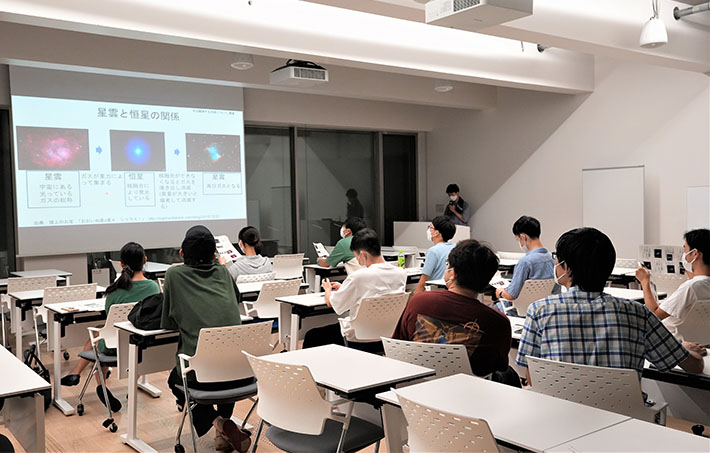
Peer life coach explaining celestial bodies
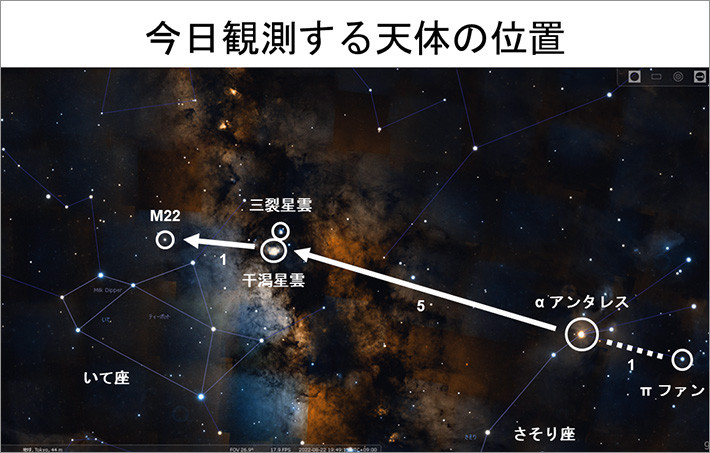
Presentation slide showing locations of viewable celestial bodies
Faint celestial objects such as nebulae cannot be seen with the human eye when on Ookayama Campus due to urban light pollution. However, by combining a special filter that reduces the effects of this light pollution with an astronomy camera and EAA methods which process images in real time, it is possible to project onto a screen images of celestial objects that are otherwise difficult to see.
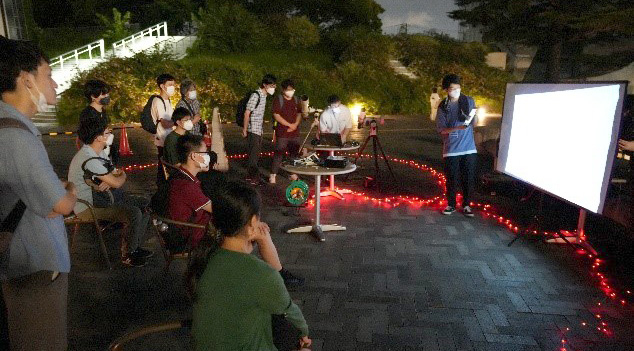
Viewing celestial bodies projected on large screen
The participants observed real-time images of celestial objects captured by the camera, which were then projected onto a screen. Thanks to EAA image processing technology, they were also able to observe how the image noise was reduced and the celestial objects became clearer as time went by. In addition to viewing objects on the screen, participants also observed celestial objects with the naked eye through a telescope.
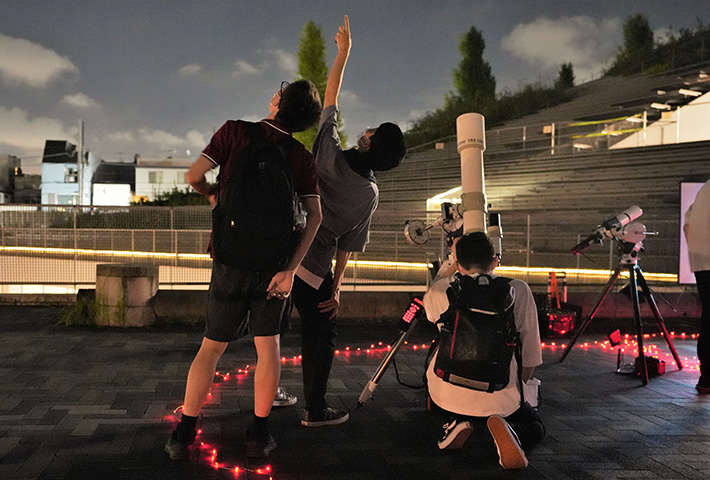
After electronically assisted observation, participants also used telescope to view night sky
Bright objects such as the double star Albireo and planet Saturn were clearly visible with just a telescope, and many students let out cheers when they were able to see Saturn's rings. On the other hand, fainter objects such as the Lagoon Nebula, which were captured in images using the astronomy camera, were difficult to see with the naked eye because they were concealed by light pollution. This is where the participants were able to experience the effectiveness of electronically assisted observing.
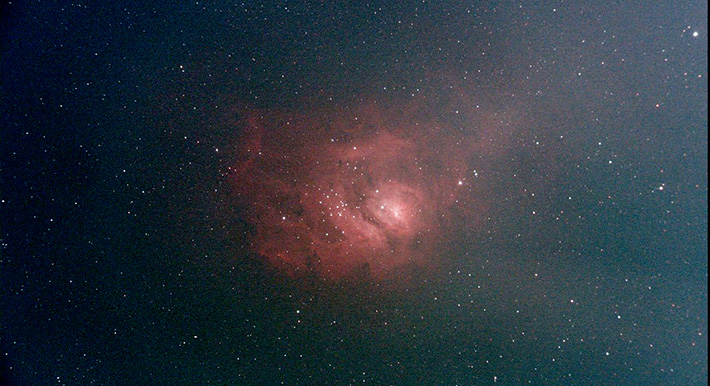
Lagoon Nebula projected on screen
Comments from participants
-
I am already looking forward to the next session!
-
I want to see the Andromeda Galaxy.
-
If possible, I hope we can also do this during the winter season.
-
This was so much fun! I was impressed after seeing the Summer Triangle and Saturn. While observing in infrared light was a bit of a challenge, the nebulae were beautiful!
This observation session was led by two peer life coaches, 4th-year Electrical and Electronic Engineering student Iori Kokubo and 4th-year Mechanical Engineering student Kazuki Hayashi. By utilizing the experience they have accumulated as members of the Astronomy Club, an official Tokyo Tech student club, the pair aim to introduce students to a variety of celestial objects that change with the seasons, and want to encourage Tokyo Tech members to experience more of what astronomical observation has to offer. Look out for more peer life coach-led evening seminars and other events that put students at the forefront.
This event was made possible thanks to telescopes and other equipment borrowed from the Astronomy Club.
. Any information published on this site will be valid in relation to Science Tokyo.







